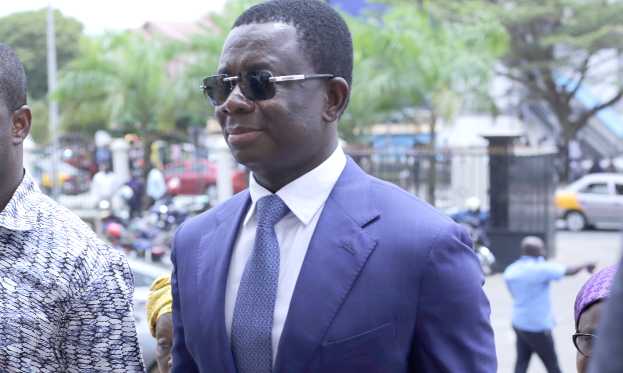Published
5 months agoon
By
Diella Teku
In a landmark ruling, Ghana’s Supreme Court has struck down Speaker Alban Bagbin’s declaration of four parliamentary seats as vacant, supporting Majority Leader Alexander Afenyo-Markin’s challenge to the move. The decision, reached with a 5-2 majority by a seven-member panel led by Chief Justice Gertrude Torkornoo, reinforces the judiciary’s role in upholding constitutional limits on parliamentary authority.
The dispute began when Speaker Bagbin invoked Article 97(1)(g) of the Ghanaian Constitution to justify his decision to declare the seats vacant. Bagbin’s action, however, faced immediate legal objections from Afenyo-Markin, who argued that the Speaker had overstepped his jurisdiction and acted without judicial review, effectively denying constituents the chance for by-elections in the affected areas.
On Tuesday, Chief Justice Torkornoo delivered the ruling against Bagbin’s decision and emphasized the Court’s intention to release a detailed explanation of the judgment soon. The Chief Justice’s comments underscored the judicial responsibility to balance constitutional boundaries, particularly when parliamentary actions risk infringing on citizens’ rights to representation.
The Supreme Court had previously issued an interim injunction, halting Bagbin’s decision from taking effect. In response, Bagbin challenged the Court’s authority over parliamentary matters, with his legal counsel, Thaddeus Sory, contending that judicial intervention would violate the separation of powers. Nonetheless, Chief Justice Torkornoo rejected this argument, clarifying that the judiciary must intervene when constitutional principles are at stake.
The Chief Justice voiced particular concern for the constituents of the affected constituencies, who could have faced disenfranchisement with the upcoming December 7 general elections approaching swiftly. The Court has now directed both sides to submit their statements of claim within a week to expedite a resolution before the elections.
This case not only highlights the importance of safeguarding constitutional principles but also raises significant questions about the separation of powers between Ghana’s branches of government. The Supreme Court’s intervention underscores the necessity of judicial oversight to protect the democratic rights of Ghana’s citizens and prevent potential overreach by parliamentary leaders.


Supreme Court Quashes Re-Collation Orders in Four Constituencies: A Boost for NDC’s Legal Strategy


Supreme Court to Hear NDC Challenge on High Court’s Re-collation Directive


Supreme Court Upholds Legislative Autonomy in Human Sexual Rights Bill Case


Supreme Court to Rule on Anti-LGBTQI+ Bill Challenge, Case Delays Attributed to Parties’ Inaction


Supreme Court to Deliver Judgment on Speaker’s Controversial Declaration of Vacant Parliamentary Seats on Tuesday


Supreme Court Set to Rule on Speaker’s Authority Over Parliamentary Vacancies in High-Stakes Case


Supreme Court Resumes Hearing on Anti – LGBTQ+ Bill


E-Levy will go even if we don’t get justice from Supreme Court – Ablakwa hails Mahama.

SC ruling on Opuni’s case a travesty of justice”- NDC

























